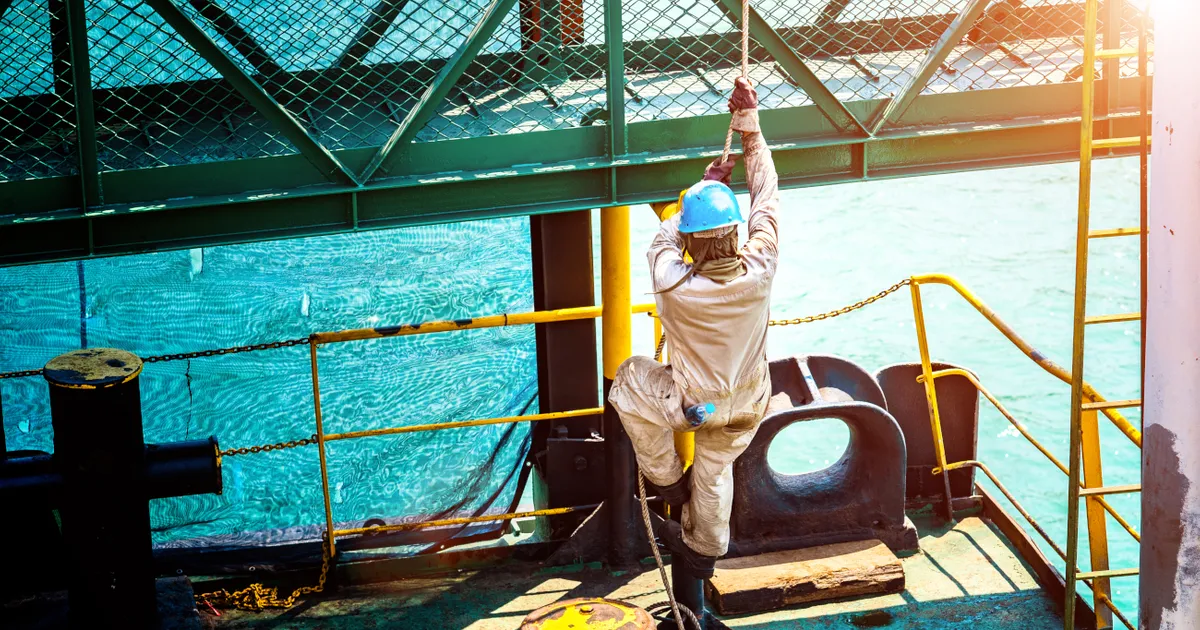When tragedy strikes at sea, it can leave the victim facing not just physical pain but also a litany of legal complications. The maritime industry is a dangerous one, and accidents, unfortunately, are a common occurrence. If you’ve been injured in a maritime or offshore accident, understanding your legal rights is vital. The right maritime attorney can guide you through the treacherous legal waters and ensure you get the compensation you deserve. There are a wide variety of choices available, and you can find the right maritime attorney if you start searching now.
 Shutterstock: Iam_Anuphone
Shutterstock: Iam_AnuphoneThe Complexities of Maritime Law
Maritime law, often referred to as admiralty law, is a specialized field encompassing a mix of domestic law, international agreements, and longstanding maritime conventions.1 The complex web of regulations not only pertains to injuries at sea but also includes matters of shipping, cargo, and even piracy.
Understanding this vast and intricate field is no small feat, making it imperative to engage with an attorney well-versed in its nuances. Attempting to tackle such complexities without a dedicated maritime attorney could leave victims vulnerable to legal pitfalls.
Understanding the Jones Act
The Jones Act is a pivotal piece of legislation for anyone working in the maritime sector. Established in 1920, the Act primarily serves as a lifeline for injured seamen. The primary aspect of the Jones Act that sets it apart is its provision allowing most maritime workers to sue their employers directly for injuries sustained during the course of their employment.2 This is crucial to understand, as many might believe that their options are limited after an injury.
Payouts: Larger Than You Might Think
It’s no secret that the maritime industry has seen some incredibly high payouts for injuries, particularly in offshore accidents. Oil rig accidents, for instance, have resulted in compensation reaching into the tens of millions of dollars.3 These large payouts are not just about compensating the victim for their pain and suffering.
They also serve as a deterrent for companies to cut corners and neglect safety protocols. These lawsuits, while seeming daunting, play an essential role in maintaining safety standards within the industry.
Why Lawsuits Can Be Worth It
Lawsuits have a reputation for being time-consuming, stressful, and, at times, overwhelmingly complex. However, maritime injuries can be life-altering, leaving victims with mounting medical bills, lost wages, and lasting trauma. With the potential for massive compensation, a lawsuit could not only alleviate these financial burdens but also serve justice and enforce accountability.
Pursuing a lawsuit also has a ripple effect. It sends a clear message to maritime employers: neglecting safety and the well-being of employees will not be tolerated. By holding these employers accountable, you’re not only seeking justice for yourself but also setting a precedent that protects future maritime workers from facing similar unfortunate circumstances.
Choosing the Right Maritime Attorney
The success of your case largely depends on the maritime attorney you choose to represent you.4 Here’s what to consider:
- Experience: This field of law is intricate. An attorney with a proven track record in maritime cases will be well-versed in the nuances of such cases, increasing your chances of success.
- Knowledge: Ensure that the lawyer is knowledgeable about the Jones Act and other relevant laws. A deep understanding of these legislations is paramount in building a strong case.
- Reputation: Look into the attorney’s reputation. Reviews, testimonials, and word-of-mouth can give insight into their capabilities and reliability.
- Resources: Maritime lawsuits can be resource-intensive. The attorney should have access to relevant resources, including a network of experts, to strengthen your case.
The Importance of Preliminary Consultations
Before diving headfirst into a lawsuit, a preliminary consultation with a maritime attorney is invaluable. These initial meetings provide victims with an opportunity to gauge the feasibility of their case, understand potential challenges, and establish a rapport with the attorney.
Most maritime attorneys offer these consultations free of charge, allowing victims to make informed decisions without the burden of upfront costs. It’s a chance to ask questions, share concerns, and chart out the roadmap for the legal journey ahead.
Find Help Today!
Navigating the aftermath of a maritime accident is far from easy. It’s a journey fraught with physical, emotional, and legal challenges. However, with the support of a seasoned maritime attorney, you can steer your case towards a favorable outcome, ensuring that justice is served and that you are aptly compensated.
Holding maritime employers accountable is not just about seeking recompense for personal grievances—it’s about setting a higher standard of safety and care within the industry. As you think about your next steps, continue your online search, and arm yourself with the knowledge you need to make an informed decision.